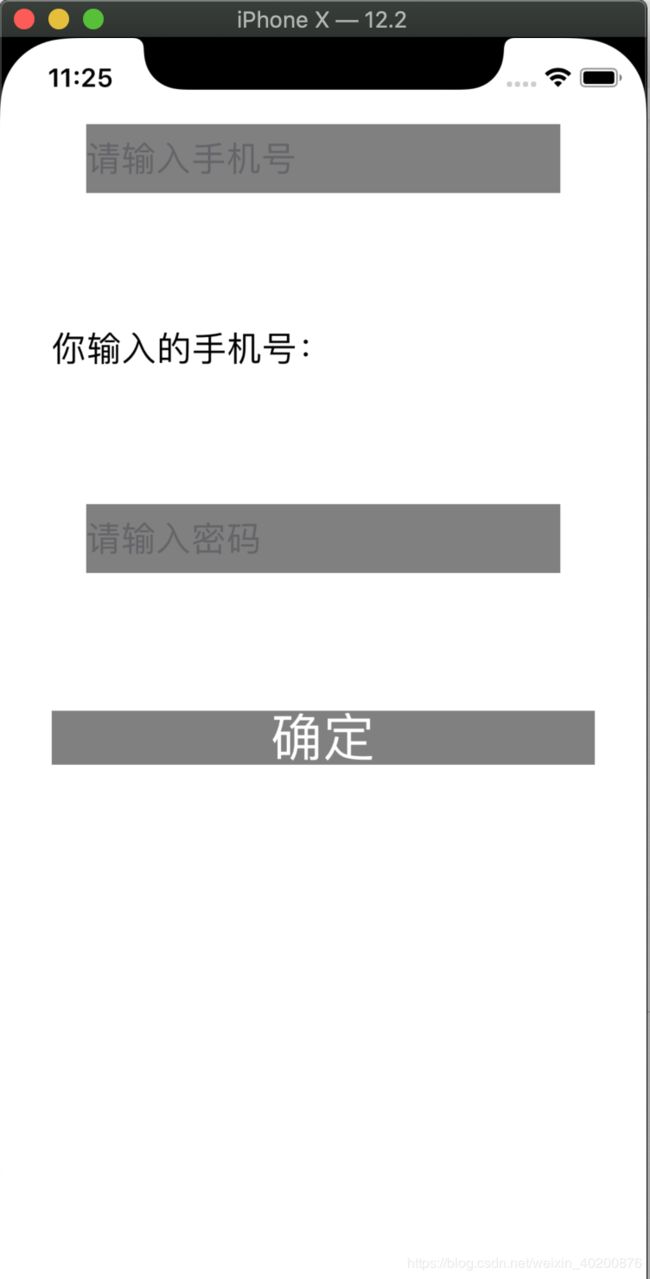ReactNative之组件回调函数的绑定
组件回调函数的绑定:
import React from 'react';
import {
StyleSheet,
Text,
View,
Dimensions,
TextInput,
} from 'react-native';
export interface IProps {
}
export interface IState {
inputedNum: string,
inputedPW: string
}
export default class Test extends React.Component{
constructor(props){
super(props);
this.state = {
inputedNum: '',
inputedPW: ''
};
// this.updatePW = this.updatePW.bind(this);
}
updateNum(newText) {
console.log('this in update num');
console.log(this);
this.setState((state)=>{
return {
inputedNum: newText,
};
});
}
updatePW(newText) {
this.setState((state)=>{
return {
inputedPW: newText,
};
});
}
render(){
console.log('this in render');
console.log(this);
return (
this.updateNum(newText)}
/>
你输入的手机号:{this.state.inputedNum}
this.updatePW}
/>
确定
);
}
}
const styles = StyleSheet.create({
container: {
flex: 1,
backgroundColor: 'white',
},
textInputStyle: {
margin:50,
height:40,
backgroundColor: 'gray',
fontSize: 20,
},
textPromptStyle: {
margin: 30,
fontSize: 20,
},
bigTextPrompt: {
margin: 30,
backgroundColor: 'gray',
textAlign: 'center',
color: 'white',
fontSize: 30,
}
}); 我们看到了两种不同的绑定方法,为什么要绑定以及不同的绑定实现方式?
在代码中我们在render函数retrun语句前的语句:
console.log('this in render.');
console.log(this);在updateNum函数的最开始处也加两个语句:
console.log('this in update num');
console.log(this);从代码中我们可以看的:
// this.updatePW = this.updatePW.bind(this);这行代码是注释掉的。
现在让我们执行代码,在手机号输入框中随意输入一个字符,手机会出现大红屏显示,
日志输出:
从日志中,我们可以看到,当render函数被执行时,this指向Test类的一个实例。而在constructor函数中加入语句this.updateNum=this.updateNum.bind(this);当updateNum函数被执行时,this指针
指向了Test类的实例。
通过上面的实验可得知:绑定操作是为了让回调函数能正确的解析出this。如果回调函数使用
剪头函数方式来回调,则不需要绑定。如果开发者在调用回调函数时使用了简写方式,就需要绑定。
最后总结一下回调函数的四种写法。
(1)使用箭头函数指向回调。
onChangeText={(newText)=>this.updateNum(newText)}这种写法,不需要使用bind函数来绑定。
(2)回调函数使用箭头函数来定义。在代码2-5-1中,将updateNum函数的定义改为:
updateNum(newText) {
this.setState((state)=>{
return {
inputedNum: newText,
};
});
}然后在JSX代码中就可以写
onChangeText=(this.updateNum)这种写法,也不需要使用bind函数来绑定,这种方法方便快捷,但它的写法与正规的类成员定义相左,有些开发者不喜欢。
(3)在构造函数中进行绑定。如代码中我们在构造函数中绑定了updatePW函数,然
后在下面直接使用
onChangeText=(this.updatePW)(4)第四种写法算是第三种写法的简化写法。在构造函数中不绑定updatePW函数(将相
应语句去掉),然后在下面使用
onChangeText=(this.updatePW.bind(this)}这种写法简单,但它的缺点是每次render时,都会执行一次bind函数(第三种写法只会在对象初始化时执行一次)。强烈建议开发者在RN组件的render函数中不要使用这种绑定方式,它确实降低了RN应用在渲染界面时的性能表现。但在非render函数中,可以使用这种方式。

